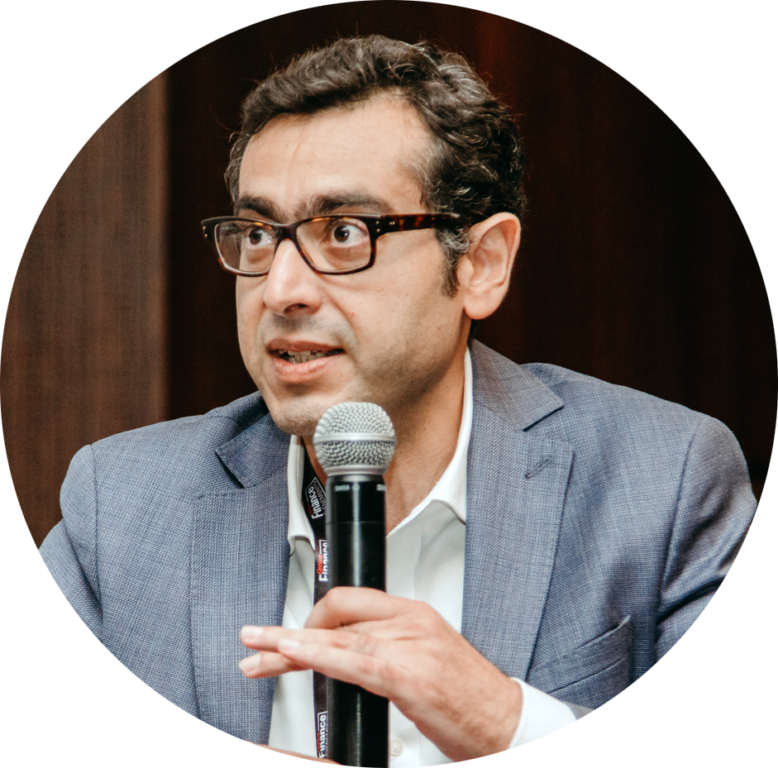 Click here to subscribe to our newsletter
Click here to subscribe to our newsletter
|
|
|
The ESG Break – Q2 2023
ESG funds quarterly update for institutional investors
The 2022 underperformance of ESG funds after a decade of outperformance have triggered some concerns about the role of ESG investing in portfolios. In this newsletter, each quarter, we answer questions institutional investors may have about ESG investing. We are focusing on analysing the main news for the industry and their implications for investors together with a follow-up on performances and flows.
Can we continue talking about an ESG factor following 2022 underperformance? How ESG indices performed in 2023 year to date and why? What have been the impact on fund flows? Did the greening of portfolios continue in 2023? Is ESG still a growing part of investors’ portfolios in 2023?
|

|

|
Marlene Hassine Konqui
|
Ahmed Khelifa, CFA
|
Expert in portfolio construction
Co-head of the SFAF ETF commission
Associate Director General BSD Investing
|
Asset allocator
Head of the SFAF ETF commission
CEO L’allocataire
|
| |
| |
|
|
| |
Following 2022 underperformance, to see if we can still speak about an ESG risk factor with a related premium and whether there is a rationale behind ESG investing craze persistence in the future, we upgraded our analysis from the previous ESG newsletter. Can we continue talking about an ESG factor? How ESG indices performed in 2023 year to date and why? What have been the impact on fund flows? Did the greening of portfolios continue in 2023? We answer all those questions in this article and take an in-depth look at ESG (sustainable) market structure both for equity and fixed income assets with a split between index and non-index funds.
Click here to read the full article. |
|
|
|
| |
|
| |
In order to achieve the Paris climate goals, the world depends on China. As of 2022, China controlled 77% of the global battery production capacity, the country is also expected to control 95% of parts of the solar panel supply chain by 2025 according to the International Energy Agency. To put this number in context, in order to reach by 2050, it is expected that 70% of electricity generation globally will have to come from solar and wind power. Today’s share is a measly 10%. Without China, there simply is no Climate Transition but does China have any economic self-interest in tackling climate change? How Paris Aligned China indexes are built?
Marcus Weyerer, CFA, Senior ETF Investment Strategist at Franklin Templeton ETFs EMEA answer the first question in this article. His colleagues together with MSCI experts explain how China green finance system is built and how Paris Aligned indexes are constructed,
in the following webinar.
|
|
| |
|
| |
The circular economy has been estimated to embed a commercial opportunity of up to USD 4.5 trillion linked to the evolution of new industries as well as create jobs, reduce climate impacts and improve the efficient use of natural resources.
Over the last several years, many entities around the world have embedded circular strategies directly into their sustainability agendas with the assumption that activities or projects labelled as circular yield sustainable results. But the assumed benefits of a circular economy are not yet understood in theory or practice. No consensus in academia or practice exists on how to measure environmental and social sustainability in a circular economy. Concerns are rising regarding some circular practices being promoted as ‘sustainable’ yet resulting in detrimental impacts on environment and society. MSCI latest report: “Transitioning to a Circular Economy” explains differences and relationships between the circular economy and sustainability.
Click here to discover the full report.
|
| |
BSD Investing & L’Allocataire model portfolio update
|
|
| |
Combining active & passive funds to build optimal portfolios
|
|
| |
Click here to discover the performances of our dynamic portfolio allocation. Our mixed approach between active and passive management on this profile has generated an outperformance of 15% compared to the MSCI ACWI index (world equities) over 1 year (until 30/04/2023), and is up 8% year to date (against 5% for world equities). It is a factual proof that the combination of active and passive strategies is an under-exploited performance driver.
|
|
|
|
| |
|
 |
| |

|
|
| |
LATEST NEWS
Portfolio Allocation: How to overcome ESG based asset allocation challenges?
ESG investing has now a place of choice in investors portfolios. Massive planned government investment plans are about to impact most developed countries economies’ as well as emerging ones. These investments are mostly linked to energy which could have an impact on future ESG investment performances. This arises new challenges in order to build efficient portfolios: Is there a fundamental economic and market rational for this keen interest to persist in the future? Can we talk about ESG as a risk factor with a related premium, based on past returns analysis? Finally, is there a solution to address the challenges of traditional benchmarking in ESG based Asset Allocation?
Click here to build effcient ESG portfolios.
|
|
| |

|
|
| |
LATEST NEWS
ESG Fund flows: Did the greening of investors’ portfolios continue in 2022?
The development of sustainable index and non-index funds has been very rapid over the past three years, particularly in 2021. In the uncertain context of 2022, have investors continued to invest in sustainable funds? Did they favour sustainable index or non-index fund? Article 8, Article 9, where are the portfolios? Is the increase in the assets under management of sustainable funds accompanied by a change in fund benchmarks? What lessons can be learned for portfolio construction?
Discover all the answers by clicking here.
|
|
| |

|
|
| |
LATEST NEWS
Thematic Investing : Separating the wheat from the chaff with BSD Investing new leaderboards
Thematic funds have attracted investors’ interests due to their unique ability to tap into human’s innate need for stories. Is this interest still strong at the beginning of 2023? How to select the right thematic? How to rank thematic funds without the limitation of current lack of nomenclature standardisation? Discover, exclusively in this newsletter, BSD Investing latest thematic leaderboards that rank both active and passive thematic funds with a special focus on Global thematic funds.
All our answers by clicking here.
|
|
| |

|
|
| |
Disclaimer
This website and all of its contents (analysis and research) is published by, and remains the copyright
of, BSD Finances or its licensors. The information contained within is for educational and informational
purposes ONLY. It is not intended nor should it be considered an invitation or inducement to buy or sell
funds nor should it be viewed as a communication intended to persuade or incite you to buy or sell
funds. Any commentary provided is the opinion of the author and should not be considered a personalised
recommendation. The information contained within should not be a person’s sole basis for making an
investment decision. Please contact your financial professional before making an investment decision.
Should you undertake any such activity based on information contained on this website, you do so
entirely at your own risk and BSD Finances shall have no liability whatsoever for any loss, damage,
costs or expenses incurred or suffered by you as a result.
Care is taken to ensure that the information provided by BSD Finances is correct but it neither
warrants, represents nor guarantees the contents of the information, nor does it accept any
responsibility for errors, inaccuracies, omissions or any inconsistencies herein.
BSD Finances is a limited liability company registered in France with registered number 852 716 547
00017. Our registered office is at 8 rue de Moscou 75008 Paris. BSD Investing is part of BSD Finances.
|
|
|